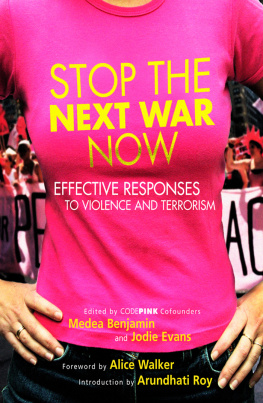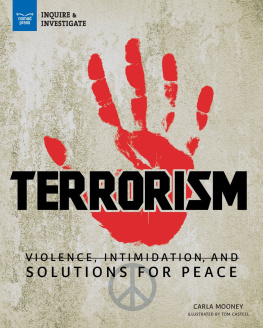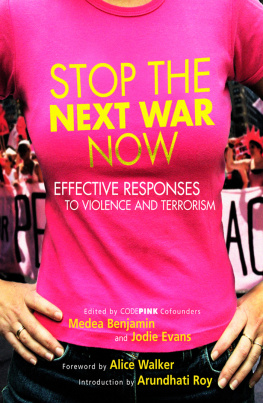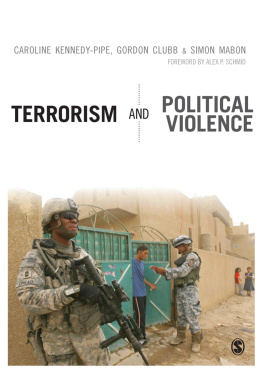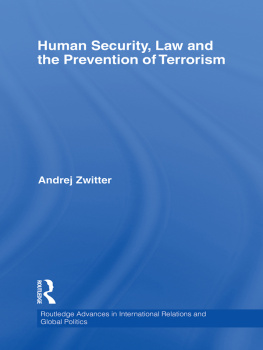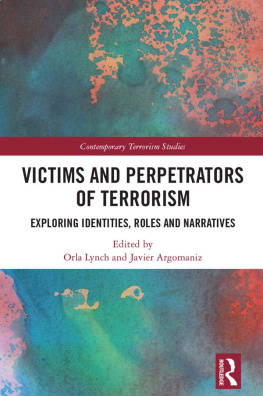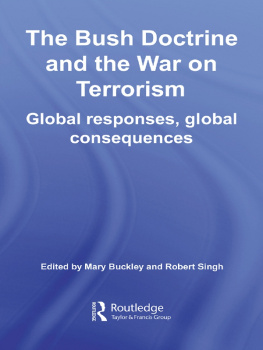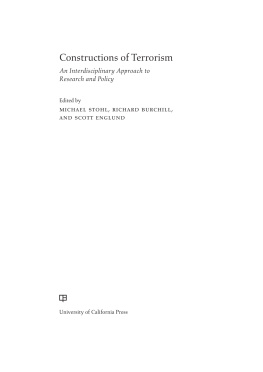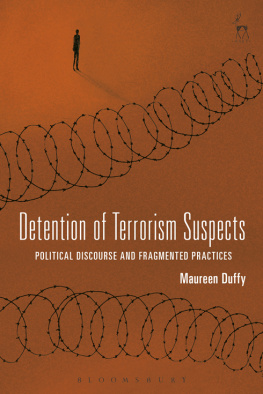STOP THE
NEXT WAR
NOW
STOP THE
NEXT WAR
NOW
EFFECTIVE RESPONSES
TO VIOLENCE AND TERRORISM
Edited by
Medea Benjamin and Jodie Evans
Inner Ocean Publishing, Inc.
Maui, Hawaii San Francisco, California
Inner Ocean Publishing, Inc.
P.O. Box 1239
Makawao, Maui, HI 96768-1239
www.innerocean.com
2005 by Medea Benjamin and Jodie Evans
All rights reserved. No part of this book may be reproduced by any means or in any form whatsoever without written permission from the publisher.
Cover design by Innosanto Nagara/Design Action Collective
Book design by Maxine Ressler
PUBLISHER CATALOGING-IN-PUBLICATION DATA
Stop the next war now / edited by Medea Benjamin and Jodie Evans. 1st ed.
Makawao, HI : Inner Ocean, 2005.
p. ; cm.
Includes essays, photography, letters, questions and answers, and resources
on the peace movement.
ISBN: 1-930722-49-4
1. Peace movements. 2. World politics. 3. Pacifism. I. Benjamin, Medea, 1952
II. Evans, Jodie.
JZ5574 .S76 2005
303.6/6dc22
0505
Printed in the United States of America on recycled paper
05 06 07 08 09 10 DATA 10 9 8 7 6 5 4 3 2 1
DISTRIBUTED BY PUBLISHERS GROUP WEST
For information on promotions, bulk purchases, premiums, or educational use, please contact: 866.731.2216 or .
Dedicated to all the peacemakers of the world
CONTENTS
FOREWORD:
TO BE LED BY HAPPINESS
ALICE WALKER
Not buying
War
Grief remains
Unsold.
I t started with Einstein. I had written a poem about his hair. It wasnt just about his hair: I was thinking about his statement that World War III might be fought with nuclear weapons but World War IV would be fought with sticks and stones. I was walking down a gray, chilly street near my home in Berkeley, thinking about the sadness of his eyes, the sadness of our situation: about to invade and massively bomb Iraq, a country inhabited by old people, orphans, women and children. Boys and men. The children, half the countrys population, under fifteen years of age. I was thinking about my impending journey to Washington, D.C., to join a demonstration against the war; a city whose streets, during slavery, were laid out by Benjamin Bennaker, a free African American (father African, mother Irish African) tobacco planter from Maryland. I thought of the ancestors who, enslaved, built (eyes lowered, muscles straining) the imposing symbols of freedom in Washington, including the White House.
Though I did want to join the women of codepink who had been holding a vigil in front of the White House for four months, dressed in pink to signify the feminine concern for the safety, especially, of children, I was dreading the long lines at the airport, and the flight. I stopped at a light, thinking of how our experience now at airports, being searched and sometimes seized, bears a resemblance worth scrutinizing to what Palestinians, attempting to enter and leave their Israeli-restricted areas, go through. Reflecting on this I rested my hand on a telephone pole before rather wearily crossing the street. A piece of paper near my hand fluttered in the wind. There, just above my head, was another famous quotation from Einstein someone had stapled to the pole: The problems we face today cannot be solved by the minds that created them.
It was a pretty grim message, perhaps grimmer than the earlier one; still, I found myself beginning to smile. Here he was: an ancestor who knew, and said out loud, that if we keep going in the direction were headed, the jig is up. By the time I reached the other side of the street I was thinking, Whose mind has not been heard at all on this question? The Mind of the Grandmothers of the World. But thats another story.
Ten thousand women dressed in hot pink, cool pink, all shades of pink, marched and rallied in Washington to celebrate March 8, International Womens Day 2003. There were rousing speeches; there was music and dance. Enormous and magical puppets. There was laughter and solemnity. The march was led by several rows of small children chanting, One Two Three Four, We Dont Want Your Crummy War. Five Six Seven Eight, We Will Not Participate. They were followed by writers and artists and activists, including Rachel Bagby, Medea Benjamin, Susan Griffin, Maxine Hong Kingston, Nina Utne, Terry Tempest Williams, and me. Behind us the sea of pink stretched as far as the eye could see.
At the edge of Lafayette Park, across from the White House, we paused. We chose twenty-five of us to enter the park (the number of demonstrators that had been allowed to enter the park for months before) only to find we were denied admittance. After a brief huddle, squatting at the knees of a line of police, we moved past the barricade. We were arrested several hours later, having sung Peace Salaam Shalom and All We Are Saying... the entire time. And it is of that time, those several hours because it took a long time to be arrested, put in holding cells, and then booked, that I wish to speak.
I had been arrested before. While protesting apartheid in South Africa; while attempting to block the shipment of weapons, by train, to Central America. Those were serious times too, but this time felt different. This time felt like: All the information is in. If our species does not outgrow its tendency to fight wars, we can kiss all we have created, and ourselves, good-bye. To bring children into the world at all, given the state of things, seems not only self-indulgent but cruel. And it was of the children I thought, partly because there, right across from us, as we sang in front of the White House, were huge photographs of dismembered fetuses held by an antiabortion group whose leader began to harangue us through a bullhorn. He called us traitors and murderers and accused us of nagging.
Nagging. What century is he from? I asked myself. That he could not make the connection between the gruesomely dismembered bodies in his photographs and those of children bombed in Iraq seemed unbelievable to all of us. As he shouted at us we sang, Protect the women and the children of Iraq, until eventually, scowling and looking extremely churlish, he left.
Standing between my Irish American sister (Susan Griffin) and my Chinese American one (Maxine Hong Kingston), and with twenty-two other courageous women all around usas Amy Goodman of Democracy Now! interviewed us for our communities across the world, and Kristin Michaels made a videotapeI felt the sweetest of all feelings: peace. The police began to gather their horses, their paddy wagons, their plastic handcuffs. We sang. Being women, we noticed and made much of the fact that a rainbow appeared suddenly in the sky.
Amy (who within minutes would be arrested herself) asked each of us how we felt about being arrested. Maxine said she felt it was the least she could do. I said I felt happier than Id felt in years. Susan said her happiness went beyond happiness to joy. None of us could live with ourselves if we sat by and did nothing while a country filled with children, a lot of them disabled, homeless, hungry, was blown to bits using money we need in the United States to build hospitals, housing, and schools.
The arrest went smoothly. I thought the police were considerate, humane. Some of us tried to help them do their job by sticking our arms out in front of us, but the handcuffs go behind, not in front. We sang in the paddy wagons, we sang later in the holding cells. We recited poetry to each other and told stories from our lives. And all the while, there was this sweetness. Even though the floor of the cell was cold, where some of us had to sit, and even though the toilet wouldnt flush. I found Fannie Lou Hamers voice coming out of my throat and led our cell in singing This Little Light of Mine.

